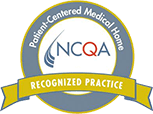Talking to Kids About COVID-19
Doreen McComas, LBSW
Maternal Infant Health Program Coordinator – Community First Health Centers
Talking about COVID-19 can be a controversial topic and over the past several months, you’ve mostly likely talked to your children about COVID-19 in some capacity. As many children are preparing to or have already returned to school, talking with them again may not be a bad idea. Here are a few suggestions to navigate that conversation with a child.
- Share simple facts that are age appropriate for your kids’ understanding:
- Define what it is. COVID-19 is caused by a germ (virus) that can make the body sick. People who have COVID-19 may have a cough, fever, and trouble taking deep breaths. But some people, especially kids, who have the virus may not feel sick at or or may have mild symptoms, like with a cold.
- Explain how it spreads. Most commonly, the virus that causes COVID-19 enters people’s bodies when it’s on their hands and they touch their mouth, nose, or eyes. A virus is so tiny that you can’t see it. That’s why it’s important to wash your hands often and try not to touch your mouth, nose, or eyes. If someone who has the infection coughs or sneezes on you from a close distance – closer than 6 feet – then that can also spread the virus.
- Talk about what’s being done. You’re hearing so much about COVID-19 because it’s a new illness that has not been seen before. Experts around the world are working hard every day to learn about COVID-19 and how to keep people safe.
- Discuss how your kids can stay safe:
- Take practical steps. Encourage frequent and proper hand washing – especially when coming home, before meals, after blowing the nose, coughing, or sneezing. Show children how to sneeze and cough into a tissue and throw it into the trash; or to cough into their bent elbow. Clean and disinfect frequently touched items and surfaces around the house.
- Demonstrate effective hand washing. Show your kids how to create tiny soap bubbles by rubbing their hands together and how to get the soap between fingers and all the way to the ends of their fingers, including their thumbs. Encourage your kids to sing the entire Happy Birthday song twice (about 20 seconds) so they spend the time they need to get their hands clean.
- Stay home more. With schools opening back up and restrictions being lifted, it’s more likely that everyone will be out and about more. But stay home when you can. Explain to the kids how this helps prevent the spread of the virus. Let them know that there are still risks, and as we practice these preventative measures like hand washing, social distancing, mask wearing and more, things will begin to look more like a routine they are used to.
- Practice social distancing. Avoid close contact with people outside of your home, even if they don’t appear to be sick. Tell your child to pretend there is a bike between them and the person they are standing near. Instead of giving high fives, fist bumps, or hugs to people outside of your family, encourage them to wave.
- Don’t forget to talk about ways to stay healthy. Healthy habits include eating a well-balanced diet, getting regular physical activity, and getting a good night’s sleep.
- What if someone in your family is exposed to coronavirus or diagnosed with COVID-19?
- When people have COVID-19, or have possibly come in contact with others who have COVID-19, they are being asked to isolate themselves from others to reduce the spread of infection. This means you should stay in your house and not be in spaces or places with people other than your family.
- If your child gets sick, remind him or her that you or another caregiver will keep close watch over them at all times. Reassure your child that you will be in close contact with your doctor who can give instructions on care and recovery.
- If a family member gets sick and needs to be isolated at home or in the hospital, explain why this person needs to be away from the family at this time. Provide opportunities for your kids to stay in contact with the loved one, whether through electronic devices or the telephone, even sending a note to brighten their day.
- What can I do to help my kids (and myself) cope?
- Remain calm. Your kids will look to you for clues about how to react. Remind them that how they feel right now is O.K. and encourage a hopeful outlook for the future.
- Keep a routine. Keep or create new family routines, such as learning activities, meal times, chores, relaxation and bed times. Structure helps kids predict what’s planned, allowing them to feel in control of situations.
- Limit access to news. There are times of constant news about COVID-19 from all types of media that may heighten fears about the disease. Limit reading, hearing, or watching the news. Also limit social media use that may expose kids to rumors and false information. Be cautious about discussing the news and your fears in front of your kids.
- Avoid placing blame. Be careful not to blame specific people, including those in cultural, racial, or ethnic groups.
- Seek advice if necessary. If you notice your kids have persistent problems with sleep, changes in eating habits, or difficulty concentrating on typical tasks, or if they have persistent sense of hopelessness, excessive sadness, or overwhelming worry, contact your doctor or a mental health professional for advice.
- Care for yourself. Caring for yourself during this time is important. Pay attention to your feelings and rely on loved ones or talk to a mental health professional. Get enough sleep, eat a healthy diet, and stay active. This will enable you to care for your kids and serve as a role model for how to cope.
If you need assistance, please reach out to Community First Health Centers, we have many programs and services to help – during this time and always!
COVID-19 Diagnostic Testing – Available in New Haven and Algonac
- 586-270-8055
Primary Medical Care & Women’s Health Services – available in Algonac, New Haven, and Port Huron
- Algonac: 810-794-4917
- New Haven: 586-749-5197
- Port Huron: 810-488-8000
Dental Services:
- New Haven: 586-749-8002
- Port Huron: Coming soon!
Behavioral Health Services – available at all locations
- 586-749-5173 ext. 285
Maternal Infant Health Program
- 586-749-5173 ext. 218
WIC Services
- 586-749-5173 ext. 232
Homeless Health Care – available to all residents experiencing homelessness in St. Clair and Macomb Counties
- 586-552-8333


